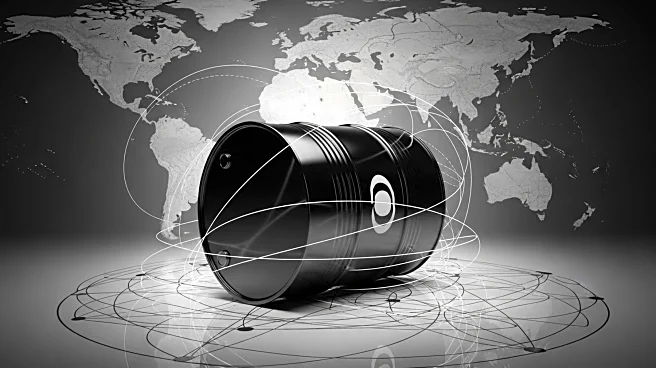What is the story about?
What's Happening?
Oil prices increased by over $1 per barrel on Tuesday due to a delay in the resumption of oil exports from Iraq's Kurdistan region. The anticipated restart of exports, which would have added to global supply, was stalled as key producers demanded debt repayment guarantees. This development comes amid a backdrop of rising crude exports from OPEC+ and the absence of new sanctions on Russian oil, which have been influencing market dynamics. The International Energy Agency has projected an increase in global oil supply, potentially leading to a surplus by 2026. However, geopolitical tensions, particularly in the Middle East, and the European Union's consideration of stricter sanctions on Russian oil exports continue to pose risks to the market.
Why It's Important?
The delay in Kurdish oil exports highlights the fragility of global oil supply chains and the impact of geopolitical factors on market stability. The increase in oil prices can affect various stakeholders, including consumers facing higher fuel costs and industries reliant on oil as a key input. The situation underscores the ongoing volatility in the oil market, influenced by both supply-side factors, such as OPEC+ production levels, and demand-side pressures, including the adoption of electric vehicles. The potential for increased sanctions on Russian oil could further tighten supply, impacting global energy prices and economic stability.
What's Next?
Market participants will closely monitor developments in the Kurdistan export negotiations and any potential geopolitical escalations that could affect oil supply. The American Petroleum Institute's upcoming weekly oil stock data release will be pivotal in assessing U.S. inventory levels and market sentiment. Additionally, the European Union's decision on Russian oil sanctions could significantly influence future price movements. Stakeholders, including governments and energy companies, may need to adjust strategies to navigate the evolving landscape of global oil supply and demand.















